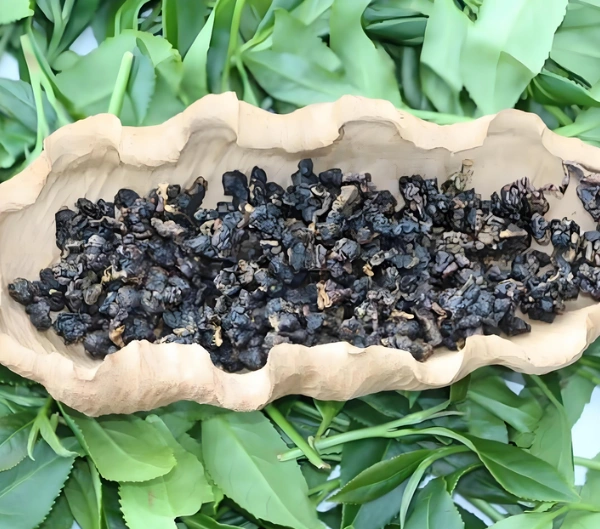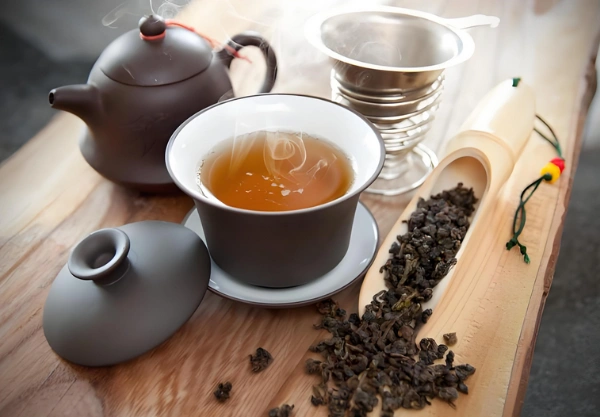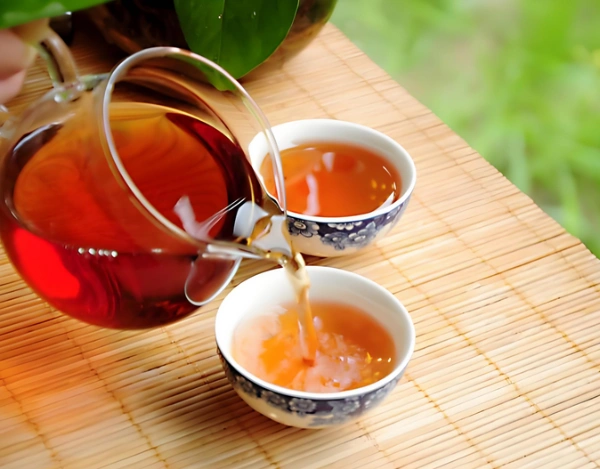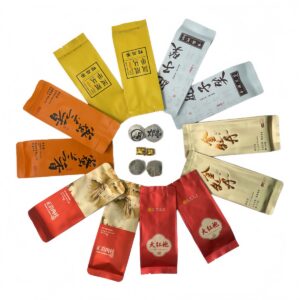Oolong tea during pregnancy offers a soothing ritual—the gentle aroma of orchid and honeyed chestnut wafting through the air, a warm cup cradled between eager palms. Yet amid those comforting sips lies an important question: how can expectant mothers enjoy the nuanced oolong tea benefits without risking their health or baby’s development?
In this comprehensive guide, you’ll learn about oolong tea side effects, safe caffeine limits, timing strategies, and decaf alternatives—empowering you to embrace calm, stress relief, and antioxidant support while guarding against undue risks.
1. Caffeine Content: Understanding Limits for Expectant Moms
Pregnancy heightens sensitivity to caffeine; the American College of Obstetricians and Gynecologists recommends limiting intake to 200 mg per day (about two 8 oz cups of oolong) to reduce risks of miscarriage and low birth weight【1】. Since oolong tea during pregnancy contains roughly 30–50 mg of caffeine per cup—depending on oxidation and steep time—it fits within safe bounds if enjoyed in moderation.
- Light-Steeped Oolong: Short, 1-minute steeps at 85 °C yield closer to 30 mg caffeine.
- Long Steeps or Multiple Infusions: Extended 3–4 minute steeps at 95 °C can approach 50 mg.
By calibrating steep time and frequency, you can savor oolong tea during pregnancy guilt‑free.

2. Potential Benefits of Oolong Tea During Pregnancy
While research on pregnant populations is limited, general oolong tea benefits suggest:
- Gentle Antioxidants: Oolong’s polyphenols—such as EGCG and theaflavins—combat oxidative stress, which can rise during pregnancy【2】.
- Mild Stress Relief: The combination of caffeine and L‑theanine promotes calm alertness; many women find oolong tea for stress relief helps soothe pregnancy‑related anxiety and insomnia.
- Digestive Aid: Warm tea can ease mild nausea and stimulate digestion, especially when sipped slowly after meals.
These perks make oolong tea during pregnancy an appealing complement to a balanced prenatal diet—provided consumption stays within recommended limits.
3. Risks & Side Effects: What You Need to Know
Even with benefits, pregnant women must heed potential oolong tea side effects:
- Caffeine Overload: Excessive caffeine crosses the placenta slowly; high levels correlate with miscarriage risk and fetal growth restriction.
- Iron Absorption Interference: Tea tannins can reduce non‑heme iron uptake by up to 50% if consumed with iron‑rich meals, potentially exacerbating pregnancy anemia.
- Sleep Disruption: Late‑day tea can impair restful sleep, vital for postpartum recovery.
To minimize risks, avoid more than two cups daily, steer clear of tea within three hours of iron supplements or meals, and never sip oolong tea during pregnancy past early evening.
4. Safe Consumption Guidelines
Follow these safe consumption strategies:
- Limit to 1–2 Cups/Day: Stay under 100 mg caffeine from oolong—well within the 200 mg total recommendation.
- Mind Timing: Enjoy your first cup mid‑morning, your second early afternoon; avoid late afternoon or evening steeping.
- Hydration Balance: Counter oolong’s mild diuretic effect by drinking a glass of water between cups.
- Monitor Symptoms: If you experience heart palpitations, jitteriness, or digestive upset, reduce intake further or switch to decaf.
By integrating these guidelines, oolong tea during pregnancy becomes a controlled, beneficial ritual rather than a gamble.

5. Brewing Tips & Decaf Alternatives
Maximize benefits while trimming caffeine:
- Short, Cool Steeps: Brew at 85 °C for 1 minute to extract flavor with less caffeine.
- Cold Brew Method: Steep 5 g leaves in 500 ml cold water for 8–12 hours; cold brewing extracts up to 60% less caffeine than hot brews.
- Decaffeinated Oolong: Seek CO₂‑processed decaf options to preserve flavor while eliminating caffeine.
These methods let you savor oolong tea during pregnancy’s soothing warmth and stress‑relief compounds without overstimulation.
6. Comparisons: Oolong vs Other Teas in Pregnancy
| Tea Type | Caffeine (per 8 oz) | Key Benefit | Pregnancy Considerations |
|---|---|---|---|
| Oolong | 30–50 mg | Balanced calm + alertness | Moderate use, mind timing & iron uptake |
| Green | 20–35 mg | High EGCG antioxidant | Similar iron interference, gentler lift |
| Black | 40–70 mg | Stronger caffeine punch | Riskier for caffeine overload |
| Herbal (Ginger, Peppermint) | 0 mg | Nausea relief, digestion | Generally safe, verify specific herbs |
While oolong tea during pregnancy can be part of your routine, herbal infusions like ginger or lemon balm offer caffeine‑free options to vary your palate and benefits.
7. When to Consult Your Healthcare Provider
Every pregnancy is unique—consult your OB‑GYN or midwife if you experience:
- Hypertension or Pre‑Eclampsia: Caffeine can affect blood pressure.
- Anemia: Monitor iron levels if tea is disrupting iron uptake.
- Persistent Insomnia: Adjust or eliminate tea if sleep suffers.
A healthcare professional can tailor advice on oolong tea during pregnancy based on your health history and laboratory results.

Conclusion: Embrace Oolong’s Comfort Wisely
Oolong tea during pregnancy can transform your daily ritual into a moment of calm, antioxidant support, and gentle digestive aid—if approached with mindfulness. By understanding caffeine limits, spacing your cups, exploring low‑caffeine brew methods, and heeding iron absorption concerns, you can safely enjoy oolong’s floral‑toasty embrace. Always listen to your body and consult your caregiver with any doubts. Here’s to nurturing both you and your little one—one mindful sip at a time.



